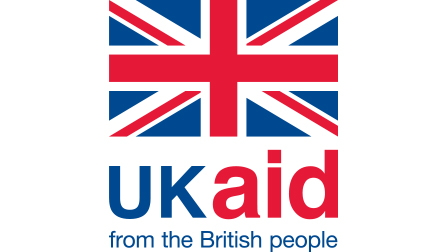
Supporting Marine Fishing Sustainably: A review of central and state government support for marine fisheries in India
This report provides—for the first time—an open-access database of support measures for marine fisheries by the Indian Central Government and four state governments (Andhra Pradesh, Karnataka, Kerala, and Tamil Nadu) based on information from government sources. It recommends an in-depth assessment of the socio-economic and environmental impacts of fuel support; support for deep-sea fishing, mariculture, and vessel modernization; and income support.
-
Government support for marine fisheries increased by 43%, from INR 1,550 crore (USD 231 million) in fiscal year (FY) 2016 to at least INR 2,225 crore (USD 316 million) in FY 2019.
-
Key support measures must be evaluated to ensure they contribute to socio-economic well-being in a sustainable way: fuel support, fixed-costs support, and income support.
-
There is a need to improve data transparency and reporting practices in support of marine fisheries to enable more informed and effective policy-making.
Marine fisheries is a key sector in India that provides nutritional security and livelihoods to millions of fishers, many of whom are small scale and low income. This makes India’s fishers particularly vulnerable if the sustainability of fisheries is undermined by overexploitation. Government support is an important factor when examining the social and environmental outcomes of the marine fisheries sector. While some government interventions play a critical role in achieving key public policy objectives such as poverty alleviation, job creation, or resource management, poorly designed support may also fail to assist low-income fishers efficiently, and it can increase fishing effort beyond sustainable levels.
Ensuring that public support to fisheries promotes sustainable development in India thus requires a review of support measures benefiting the sector and their potential implications from social, economic, and environmental perspectives. This report aims to contribute to an informed, evidence-based national discussion in this area by developing an inventory of support measures provided to marine fisheries and identifying specific programs that should be prioritized for detailed evaluation in the future.
The report finds that total estimated government support for marine fisheries increased by 43%, from INR 1,550 crore (USD 231 million) in fiscal year (FY) 2016 to at least INR 2,225 crore (USD 316 million) in FY 2019. Considering only the support measures that would most likely fall within the scope of possible new World Trade Organization rules on fisheries subsidies (i.e., subsidies to wild marine capture fishing and fishing-related activities at sea), the total decreases significantly to INR 829 crore (USD 117 million).
The report identifies three key support categories as priorities for an in-depth assessment of impacts from socio-economic and environmental sustainability perspectives: fuel support; support for deep-sea fishing, mariculture, and vessel modernization; and income support.
Funded by
You might also be interested in
Supporting Marine Fishing Sustainably: A review of central and provincial government support for marine fisheries in Indonesia
The report provides an inventory of support measures to marine fisheries in Indonesia and identifies programs to be assessed to minimize the risk of overcapacity and overfishing.
Indonesia Should Assess Fisheries Support to Minimize Overfishing Risk
A new report suggests that certain government supports may incentivize overfishing in Indonesia. Experts say these should be prioritized for possible reform.
World Trade Organization Talks on Subsidies that Contribute to Overcapacity and Overfishing: What's on the table?
World governments are currently negotiating new global disciplines to curb harmful fisheries subsidies. What new rules are being proposed?
Landmark Agreement Curbing Harmful Fisheries Subsidies Awaits Ratification A Year After Adoption
This month marks the first anniversary of the World Trade Organization’s (WTO) historic Agreement on Fisheries Subsidies. The treaty, adopted at the WTO's 12th Ministerial Conference, established the first global, legally binding framework that limits subsidies for illegal, unreported and unregulated (IUU) fishing and fishing of overfished stocks, as well as subsidies to vessels fishing on the unregulated high seas. The agreement also calls for countries to exercise “due restraint” in providing subsidies to vessels that do not fly their country’s flag or those that fish stocks with unknown status.
